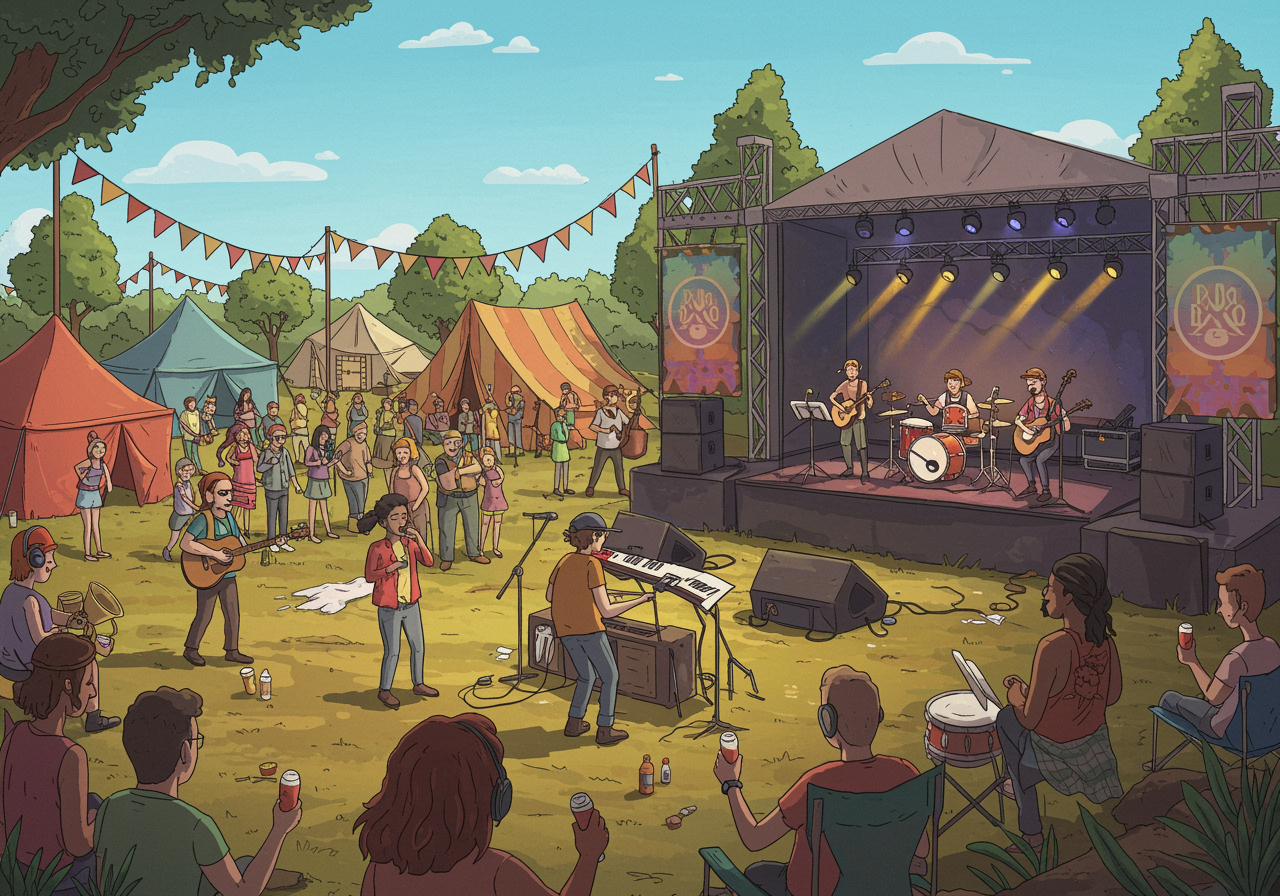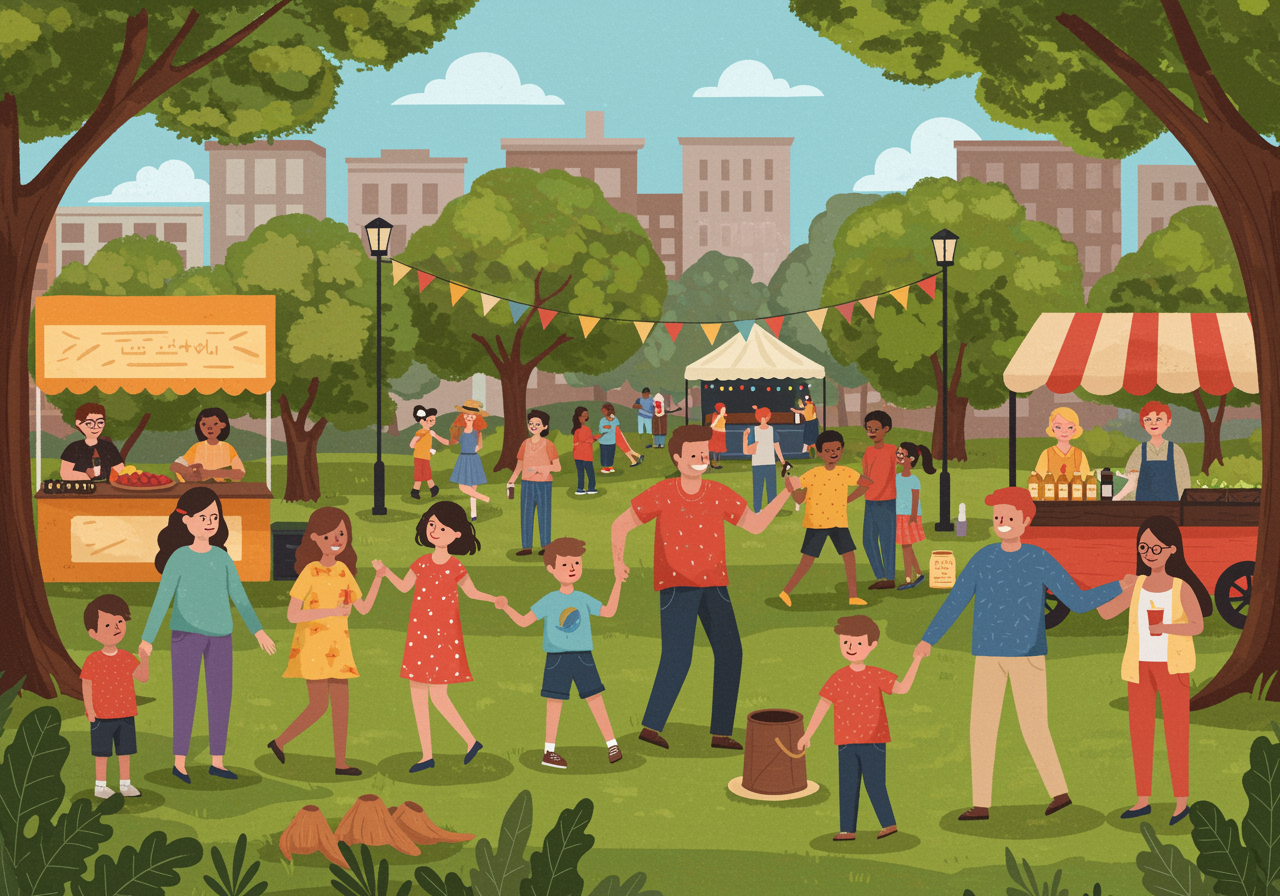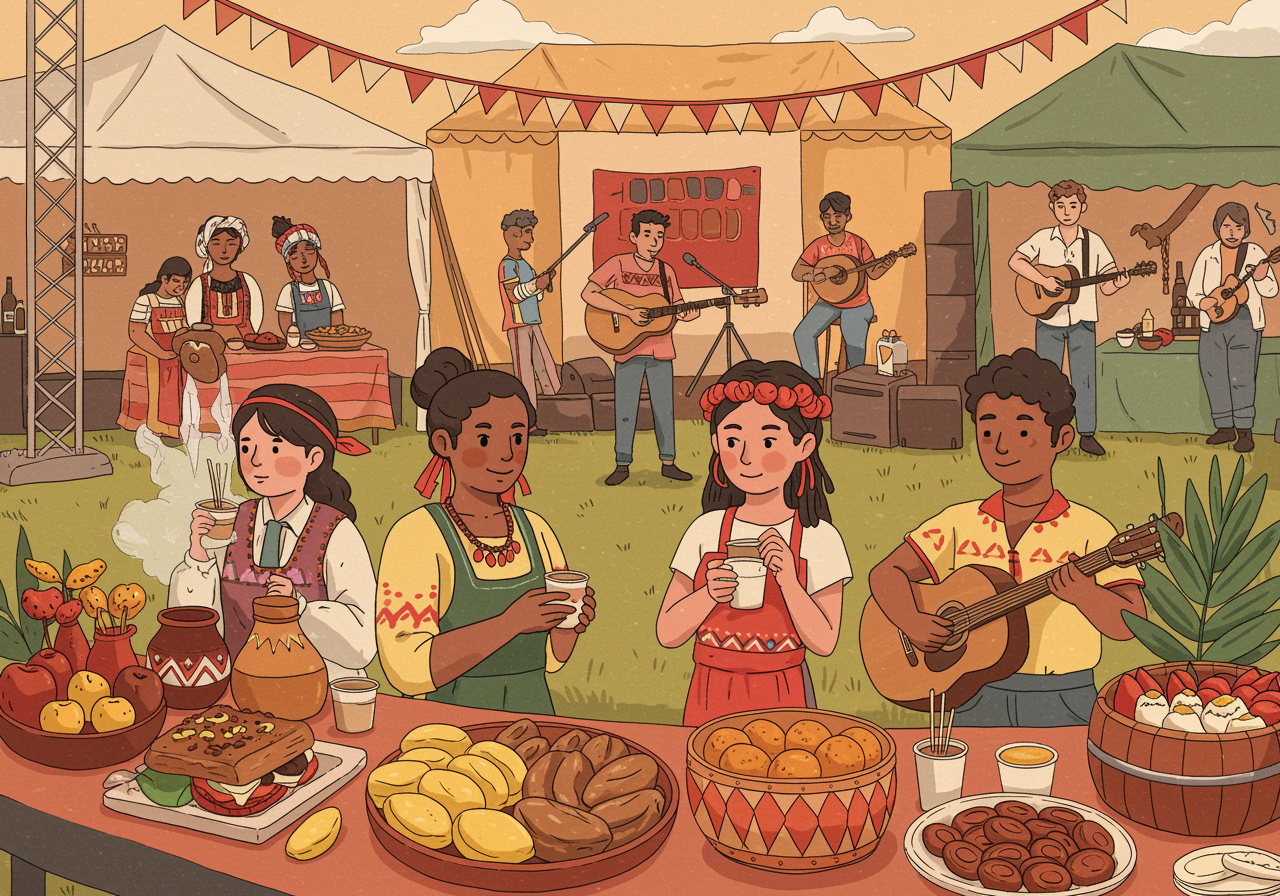When Music Makes Magic: How Festivals Turn Strangers Into Community
Discover how a few guitars, some drums, and thousands of dancing feet can transform entire neighborhoods
Ever wonder why people travel hundreds of miles to stand in a muddy field listening to music they could stream at home?
Overview
Music festivals are like giant community potlucks, but instead of bringing casseroles, everyone brings their energy and love for music. They're powerful forces that can revive struggling neighborhoods, launch unknown artists into stardom, and turn complete strangers into lifelong friends. When your teen mentions wanting to go to a festival, it's the perfect chance to explore how music creates connections that go far beyond just entertainment. These events are living laboratories for understanding community, culture, and the amazing things that happen when people come together around something they love.

Understand in 30 Seconds
Get up to speed quickly
- Shared Experience Magic: When thousands of people sing the same song at the same time, it creates an instant bond that breaks down barriers between strangers.
- Local Culture Spotlight: Festivals showcase hometown artists, traditional foods, and regional music styles that might otherwise get lost in our global world.
- Economic Community Boost: Music festivals bring tourist dollars to local businesses, from hotels to food trucks, creating jobs and supporting families.
- Cultural Exchange Hub: Festivals mix different musical styles and cultures, helping people learn about and appreciate traditions different from their own.
Real Life Scenario
Situations you can relate to
Imagine your neighborhood decided to throw a block party, but instead of just your street, the whole city showed up! That's basically what happened in Austin, Texas. What started as a small local music event called South by Southwest (SXSW) grew into a massive festival that transforms the entire city every March. Local coffee shops become temporary venues, unknown bands get discovered, and people from around the world come to experience Austin's unique music culture. The festival doesn't just bring money to big venues – it helps small businesses, gives local artists a platform, and shows the world what makes Austin special. Have you ever been to a concert where everyone around you felt like family, even though you'd never met them before? That's the magic festivals create, but on a city-wide scale.

Role Play
Spark a conversation with “what if” scenarios
What if your family was chosen to plan a music festival for your town?
- Role play: Take turns being the festival director, local business owner, and visiting artist. Discuss what each person would want from the festival and how to make everyone happy.
What if you were a shy local musician who just got invited to perform at a big festival?
- Role play: Act out the nervousness, excitement, and preparation. Then role-play meeting fans from different countries who love your music.
What if you were a visitor from another country experiencing your first American music festival?
- Role play: Explore the cultural differences you might notice, the foods you'd try, and the new friendships you might make through music.
FAQs
Frequently asked questions people want to know
Don't festivals just make money for big companies?
While some large festivals are corporate-owned, many are community-driven events that directly support local economies, artists, and small businesses.
How do festivals help unknown artists?
Festivals give new artists exposure to thousands of potential fans, industry professionals, and other musicians they might collaborate with.
Why do people choose festivals over just listening to music at home?
The live energy, shared excitement, discovery of new artists, and social connections create experiences that can't be replicated through headphones.
Examples in the Wild
See how this works day to day
- New Orleans Jazz Fest brings in $400 million annually to the local economy while preserving and celebrating Louisiana's unique musical heritage (New Orleans Tourism Board)
- Coachella transformed the small desert town of Indio, California, creating year-round jobs and putting the city on the global cultural map (Los Angeles Times)
- The Montreal Jazz Festival holds the Guinness World Record as the world's largest jazz festival, showcasing both international stars and local Quebec artists (Guinness World Records)
- Bonnaroo's sustainability initiatives have diverted over 400 tons of waste from landfills while educating attendees about environmental responsibility (Bonnaroo Environmental Report)
In Summary
What you should know before you start
- Music festivals create instant communities by bringing people together around shared musical experiences
- They shine a spotlight on local artists, foods, and cultural traditions that make each place unique
- Festivals pump millions of dollars into local economies, supporting everything from hotels to food vendors
- These events break down cultural barriers and help people appreciate different musical styles and traditions
Pro-tip for Parents
You got this!
If your teen expresses interest in attending a festival, use it as a chance to research together. Look up the festival's history, the artists performing, and the local culture of where it's held. This turns their interest into a learning opportunity about music, geography, and community economics. You might even discover some new music you both enjoy!

Keep an Eye Out For
Find these examples in everyday life
- Local music events in your community, from small venue concerts to outdoor festivals
- News stories about how major festivals impact their host cities economically and culturally
- Social media posts from festival attendees sharing stories about artists they discovered or friends they made
Explore Beyond
Look up these related research topics
- How different cultures express themselves through traditional music and festivals
- The business side of the music industry and how artists make a living
- Urban planning and how cities design spaces for large community gatherings